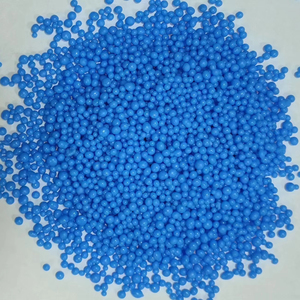(827 products available)







































































































































































Boron fertilizer is a critical component in the agricultural sector, playing a vital role in the growth and development of plants. As a micronutrient, boron is essential for cell wall formation, nutrient transportation, and reproductive processes. This introduction delves into the various aspects of boron-based fertilizers, their applications, and the benefits they offer to different types of vegetation.
There are several forms of boron fertilizer, each tailored to specific plant needs and soil conditions. Granular boron, for instance, is widely used for broad-acre farming due to its ease of application and slow-release properties. Liquid boron solutions are preferred for precise application, often used in horticultural settings or for foliar sprays. The versatility of boron fertilizers allows for their use across a diverse range of crops, from large-scale agricultural operations to specialized horticultural endeavors.
Quality boron fertilizers are characterized by their uniform granule size, which ensures even distribution and availability to plants. The material composition typically includes essential compounds such as borates, which are readily absorbed by plant roots. Some products are enriched with additional nutrients, like humic acids and trace minerals, to further support plant health and soil vitality.
The strategic use of boron in agriculture brings numerous advantages. It aids in the optimal development of plant reproductive systems, which is crucial for fruit and seed production. Boron also enhances the structural and functional integrity of plant cell walls, contributing to overall plant strength and vigor. Furthermore, it helps in the efficient utilization of other nutrients, particularly nitrogen and phosphorus.
Sustainable farming practices are increasingly important, and the use of boron fertilizers aligns with this ethos. Products that are free from genetically modified organisms (GMOs) and synthesized from natural, organic sources support environmental health. The inclusion of boron in crop management can lead to improved resistance to climatic stresses such as heat, cold, and drought, promoting resilience in crops.
For effective use, it is important to follow recommended application rates and methods. For instance, during transplanting, applying boron fertilizer every few weeks can be beneficial. Seedlings may require a diluted solution, while certain trees might need a more concentrated application. Consistency in application ensures that plants receive the full benefits of the nutrient throughout their growth cycle.
Discover the potential of boron fertilizer to enhance your crop yield and plant health. Explore the selection on Alibaba.com and find the right formulation for your agricultural needs.